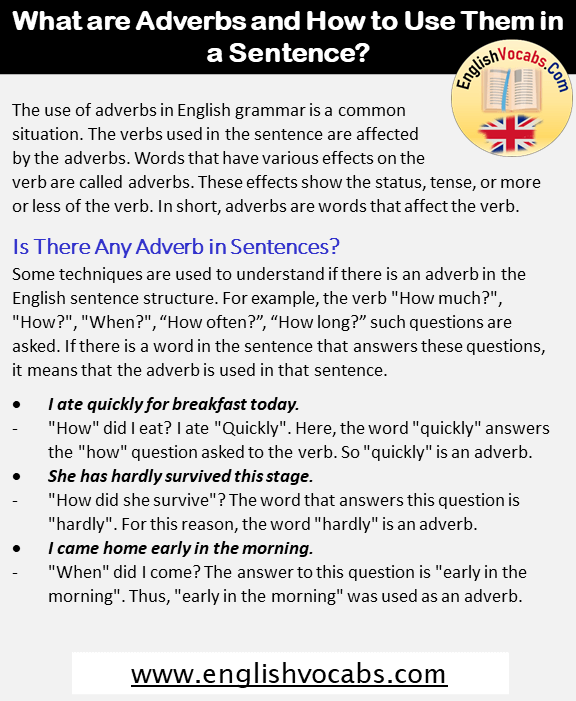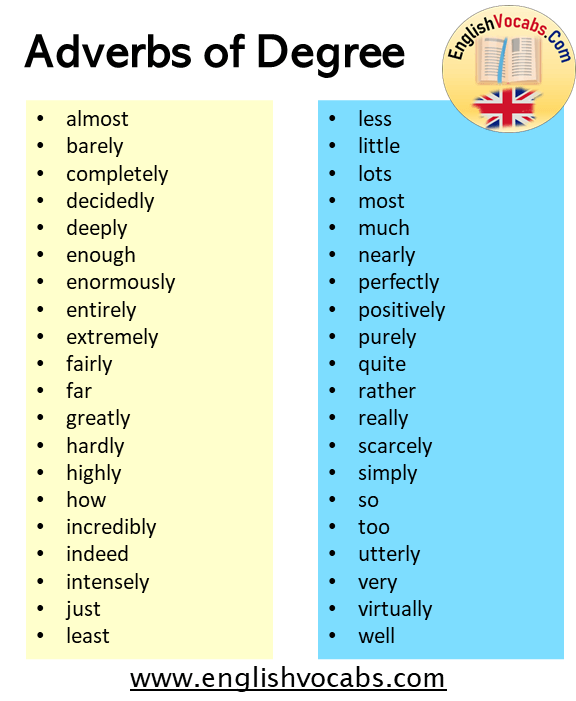What are Adverbs and How to Use Them in a Sentence?

Table of Contents
What are Adverbs and How to Use Them in a Sentence?
The use of adverbs in English grammar is a common situation. The verbs used in the sentence are affected by the adverbs. Words that have various effects on the verb are called adverbs. These effects show the status, tense, or more or less of the verb. In short, adverbs are words that affect the verb.
318 Common Adverbs List and Meanings
850 Positive Adverbs List From A to Z
Is There Any Adverb in Sentences?
Some techniques are used to understand if there is an adverb in the English sentence structure. For example, the verb “How much?”, “How?”, “When?”, “How often?”, “How long?” such questions are asked. If there is a word in the sentence that answers these questions, it means that the adverb is used in that sentence.
- I ate quickly for breakfast today.
- “How” did I eat? I ate “Quickly”. Here, the word “quickly” answers the “how” question asked to the verb. So “quickly” is an adverb.
- She has hardly survived this stage.
- “How did she survive”? The word that answers this question is “hardly”. For this reason, the word “hardly” is an adverb.
- I came home early in the morning.
- “When” did I come? The answer to this question is “early in the morning”. Thus, “early in the morning” was used as an adverb.
- I’ve been doing this homework for a week.
- “How long have I been doing”? With this question asked to the verb, the answer is “for a week”. For this reason, the adverb in the sentence is “for a week”.
NOTE: The sentences such as “always”, “sometimes”, “never” are adverbs of frequency in the sentence.
- I always go to visit my grandma.
- How often do I visit? The word “always” answers this question asked for the verb. In this case, the word “always” is an adverb.
Are There Rules for Adverbs in Grammar?
The adverbs used in a sentence are formed in some ways. With the suffix “-ly” usually placed at the end of adjectives, adjectives that affect nouns now become adverbs that affect verbs.
- They ask hard questions in the exam.
I overcome this problem very hardly.
- In the first sentence, the word “hard” describes the name. In the second sentence, this word took the suffix “-ly” and affected the verb as “hardly”.
- They saw things differently.
She came by a different car today.
- The weather will be clear and sunny on the weekend.
You should discuss this clearly with the boss.


